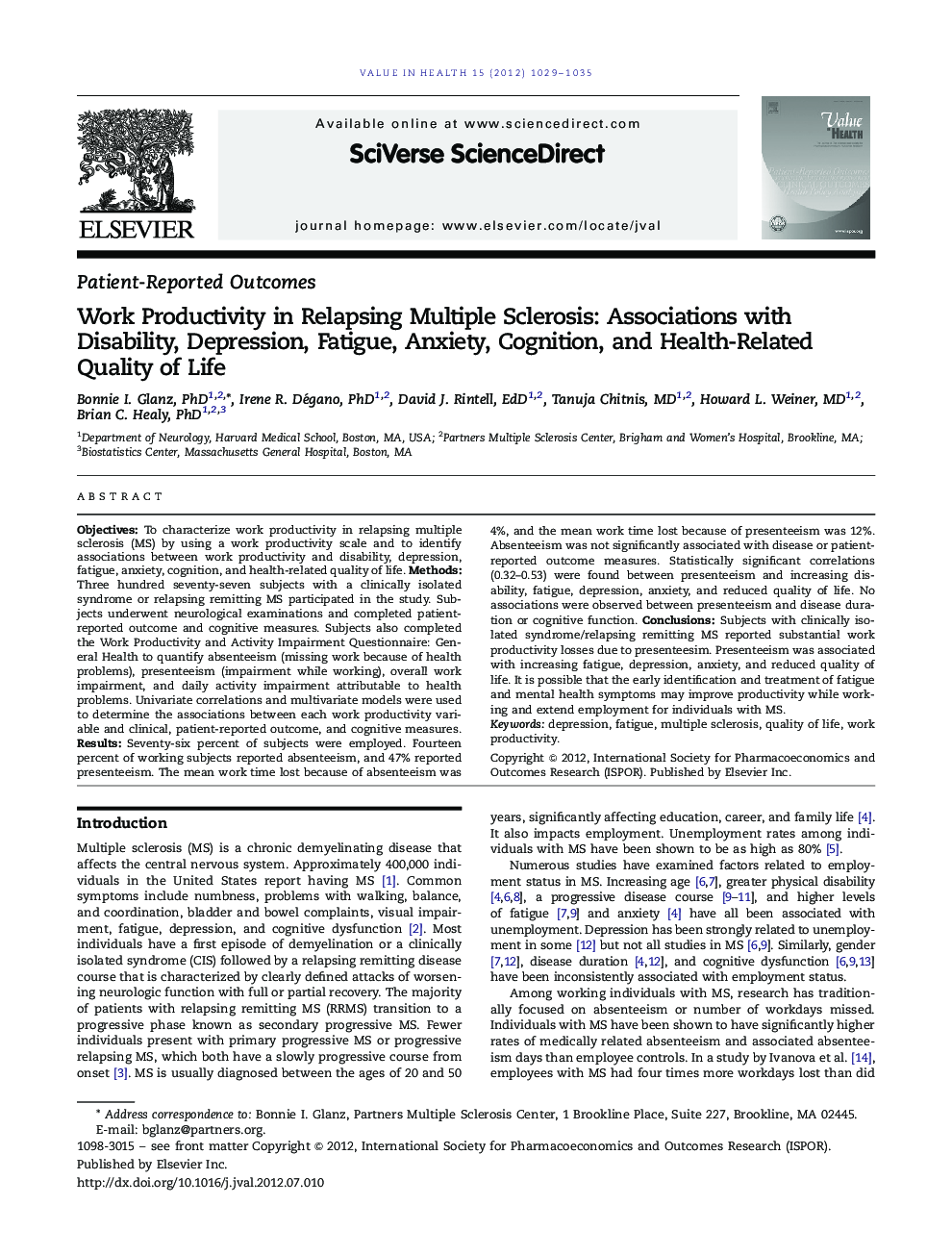| کد مقاله | کد نشریه | سال انتشار | مقاله انگلیسی | نسخه تمام متن |
|---|---|---|---|---|
| 987696 | 935160 | 2012 | 7 صفحه PDF | دانلود رایگان |
ObjectivesTo characterize work productivity in relapsing multiple sclerosis (MS) by using a work productivity scale and to identify associations between work productivity and disability, depression, fatigue, anxiety, cognition, and health-related quality of life.MethodsThree hundred seventy-seven subjects with a clinically isolated syndrome or relapsing remitting MS participated in the study. Subjects underwent neurological examinations and completed patient-reported outcome and cognitive measures. Subjects also completed the Work Productivity and Activity Impairment Questionnaire: General Health to quantify absenteeism (missing work because of health problems), presenteeism (impairment while working), overall work impairment, and daily activity impairment attributable to health problems. Univariate correlations and multivariate models were used to determine the associations between each work productivity variable and clinical, patient-reported outcome, and cognitive measures.ResultsSeventy-six percent of subjects were employed. Fourteen percent of working subjects reported absenteeism, and 47% reported presenteeism. The mean work time lost because of absenteeism was 4%, and the mean work time lost because of presenteeism was 12%. Absenteeism was not significantly associated with disease or patient-reported outcome measures. Statistically significant correlations (0.32–0.53) were found between presenteeism and increasing disability, fatigue, depression, anxiety, and reduced quality of life. No associations were observed between presenteeism and disease duration or cognitive function.ConclusionsSubjects with clinically isolated syndrome/relapsing remitting MS reported substantial work productivity losses due to presenteesim. Presenteeism was associated with increasing fatigue, depression, anxiety, and reduced quality of life. It is possible that the early identification and treatment of fatigue and mental health symptoms may improve productivity while working and extend employment for individuals with MS.
Journal: Value in Health - Volume 15, Issue 8, December 2012, Pages 1029–1035
